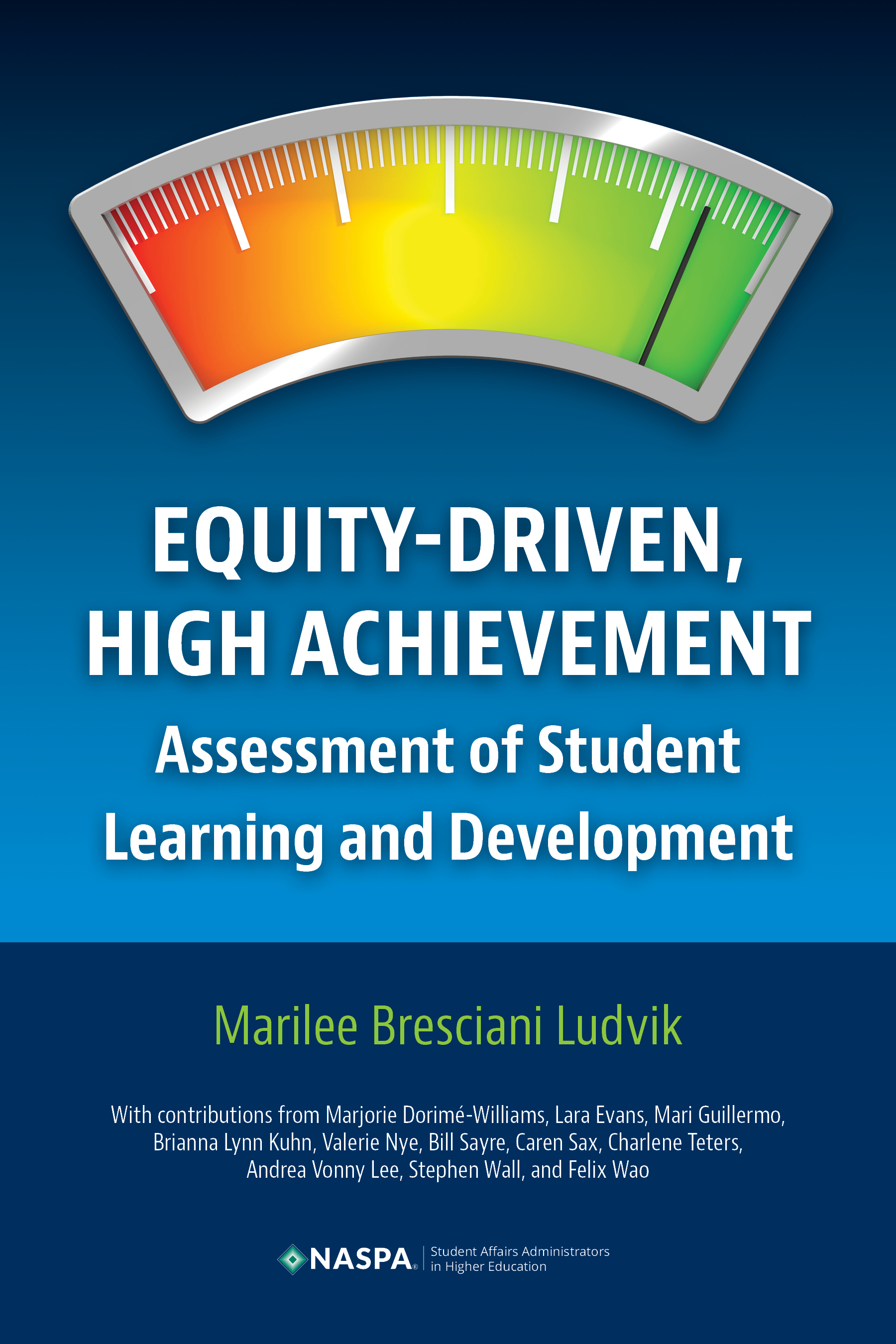
Equity-Driven, High Achievement Assessment of Student Learning and Development
Equity, Inclusion and Social Justice Assessment, Evaluation, and Research Equity, Inclusion, and Social Justice Division AVP or "Number Two" Faculty Graduate Mid-Level New Professional Senior Level Undergraduate VP for Student Affairs
September 1, 2021
Equity-Driven, High Achievement Assessment of Student Learning and Development provides a framework and accompanying questions to consider as you refine your outcomes-based assessment process into one that is equity driven. Equity driven infers that leaders have evidence to inform choices so all students can experience high achievement in their learning and development outcomes. The invitation is for leaders to critique institutional performance indicators, analysis, and decision-making processes that inform the selection of those performance indicators, and align resources accordingly to ensure high achievement for all students.
Paperback | 2021 | 266 pages
ISBN: 978-1-948213-32-5